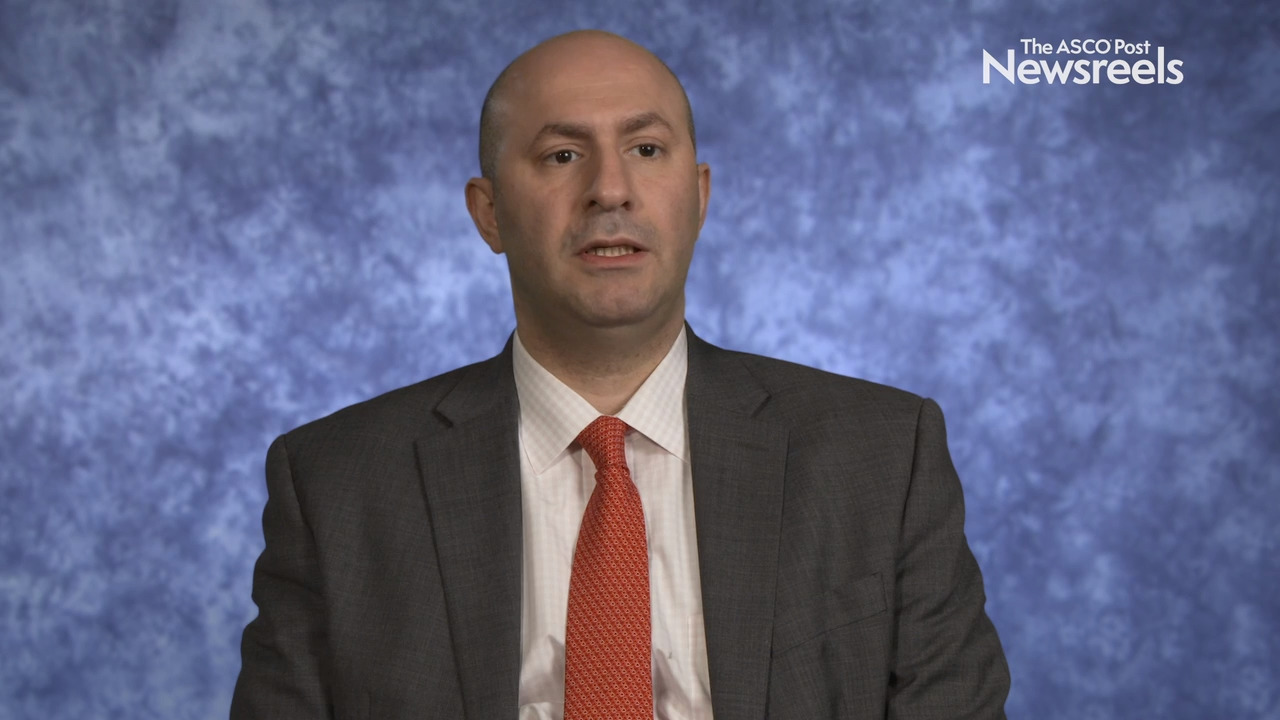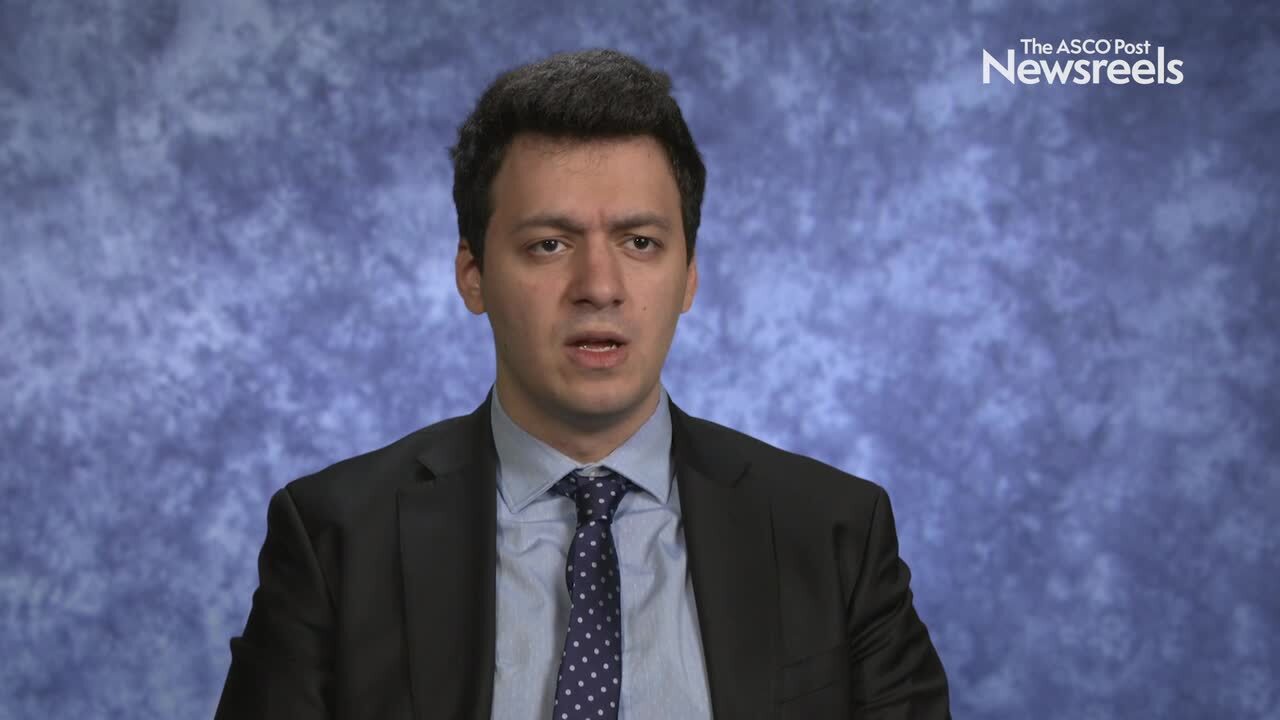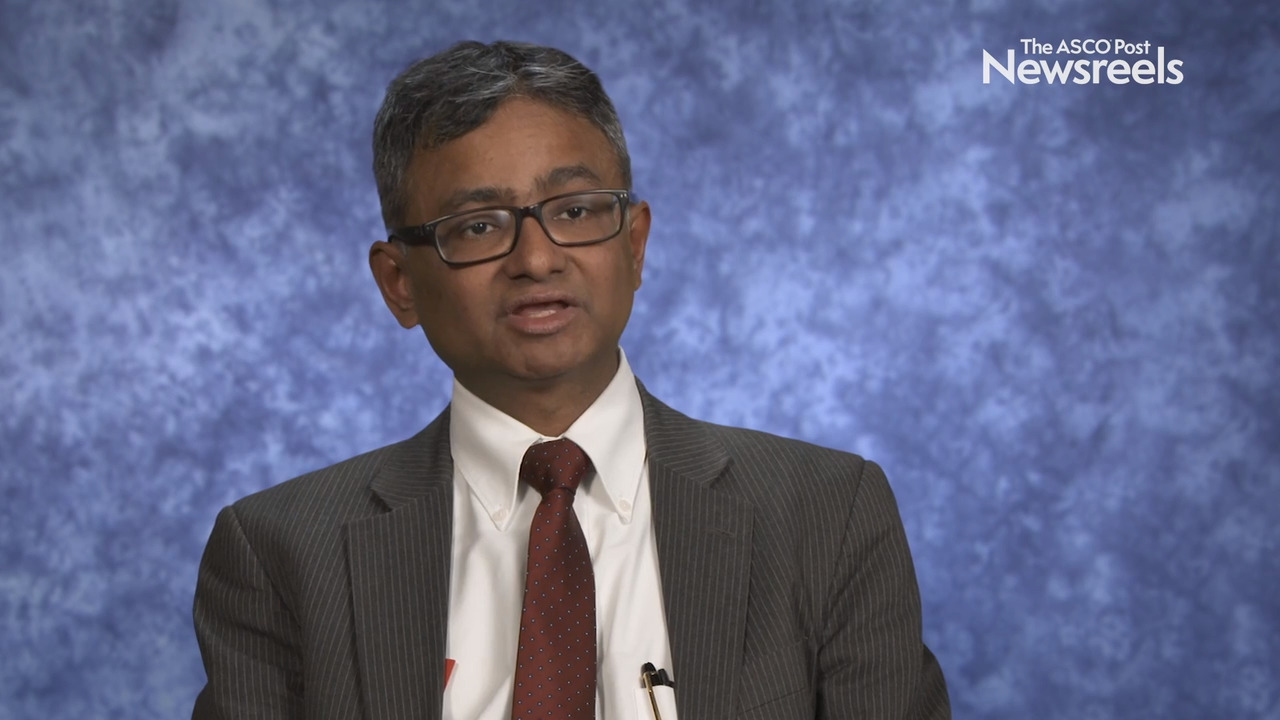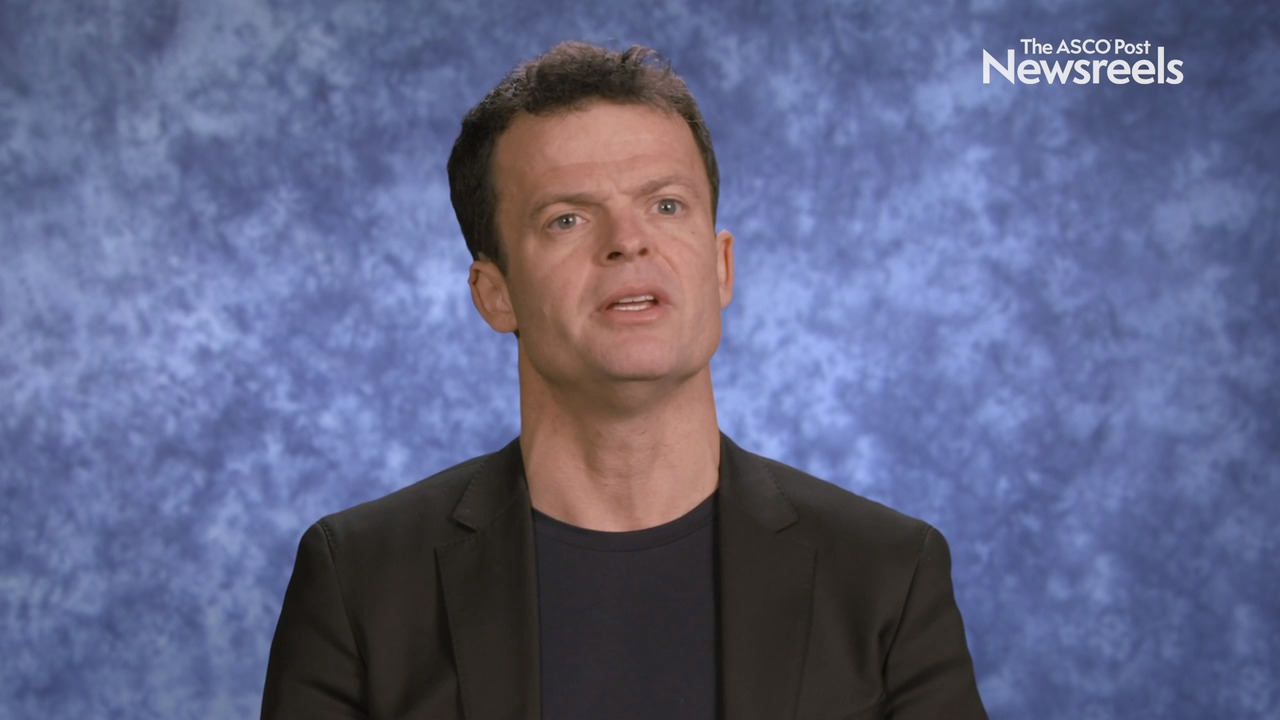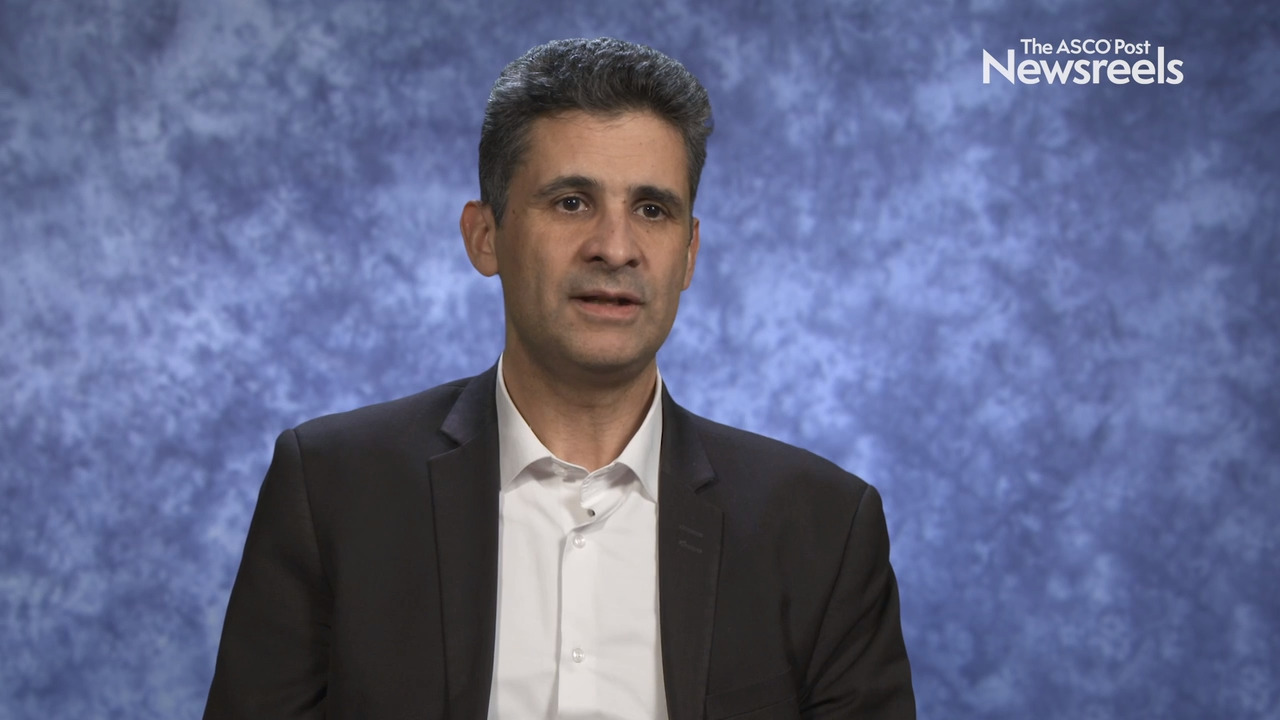Jonathan E. Rosenberg, MD, on Locally Advanced or Metastatic Urothelial Carcinoma: Enfortumab Vedotin Plus Pembrolizumab
2020 Genitourinary Cancers Symposium
Jonathan E. Rosenberg, MD, of Memorial Sloan Kettering Cancer Center, discusses study results which showed that, in first-line cisplatin-ineligible patients with metastatic urothelial carcinoma, enfortumab vedotin/pembrolizumab demonstrated activity and durability, with a manageable safety profile (Abstract 441).
The ASCO Post Staff
Toni K. Choueiri, MD, of Dana-Farber Cancer Institute, describes a currently recruiting phase III study (COSMIC-313) of cabozantinib in combination with nivolumab and ipilimumab vs nivolumab/ipilimumab for patients with previously untreated advanced renal cell carcinoma of intermediate or poor risk (Abstract TPS767).
The ASCO Post Staff
Ziad Bakouny, MD, of Dana-Farber Cancer Institute, discusses two types of renal cell cancer that are associated with poor prognosis. Because recent early data suggest these tumors respond well to immune checkpoint inhibitors, the authors characterized the tumors in an integrative molecular and clinical study (Abstract 715).
The ASCO Post Staff
Syed A. Hussain, MD, of the University of Sheffield, discusses phase II findings comparing nintedanib or placebo in combination with gemcitabine and cisplatin in locally advanced muscle-invasive bladder cancer. The data showed that adding nintedanib was safe and well tolerated, with a significant improvement in progression-free and overall survival at 1 and 2 years (Abstract 438).
The ASCO Post Staff
Thomas Powles, MD, PhD, of Queen Mary University of London, summarizes two papers on metastatic renal cell carcinoma for which he was the discussant: nivolumab in combination with stereotactic body radiotherapy in pretreated patients, and combining dual immune checkpoint inhibition with stereotactic radiation (Abstracts 613 & 614).
The ASCO Post Staff
Karim Fizazi, MD, PhD, of the Institut Gustave Roussy, discusses results from the CARD study, which showed that cabazitaxel improved pain, time to pain progression, and symptomatic skeletal events, as well as quality of life in patients with metastatic castration-resistant prostate cancer. The findings support the use of this agent as a standard of care (Abstract 16).
